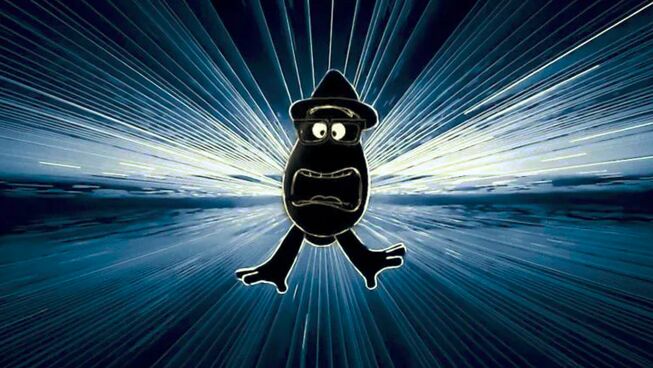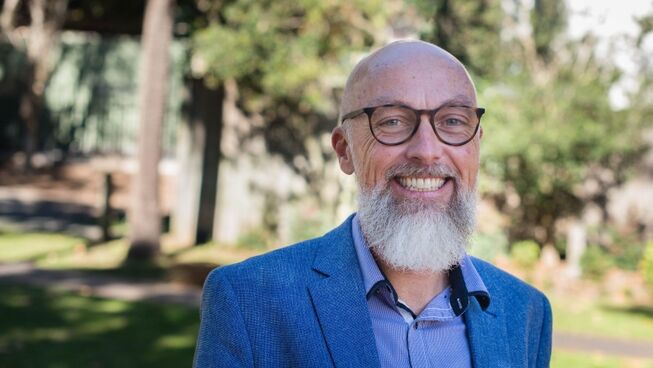I couldn't live without my (FILL IN THE BLANK)

Imagine if we never got to travel overseas again. I mean never ever.
Imagine if this COVID thing stopped us doing what has become almost a right for many Australians, to travel internationally.
Here we are, tucked away from the rest of the world, down the bottom of the globe, and we'd become used to the immediacy that international travel brought us. We didn't feel so isolated "down under" any longer. We got to travel.
That trip to Bali each year. Those three trips to Bali each year. London for The Ashes. New York for New Year's Eve.
Last year we were told "next year". This past week the Prime Minister, Scott Morrison said "next year". Maybe it won't be next year. Maybe not even the year after that. What if it were never?
We can tell as much, if not more, about ourselves by how we respond to the absence of something we love, rather than the presence of it.
Our attitudes are not as clearly revealed by us having the things we want, as they are by not having access to those things. Something taken away from us arouses a deeper emotional reaction from within us than something given to us, especially if we are used to having access to that thing.
Remember the good old days of the non-reusable plastic bag ban? The visceral rage at that right to use non-reusable plastic bags being taken away from us now seems ludicrous. But boy did it bring out some serious emotions in people. Toxic emotions at that. Emotions beyond the requirement of a plastic bag ban!
Perhaps we tut-tut at the wildly over-the-top anger of those who were unable to access those grey plastic shopping bags. Perhaps we smile gently at those who are angry that they cannot travel overseas.
But perhaps that is because those are not the things we love. Those are not the things that we attach meaning or significance to in our own lives. Perhaps those things have yet to be tested.
But let's put ourselves to the test. Test yourself with the following:
I couldn't live without (FILL IN THE BLANK).
And that could be anything. A position in your life. A person in your life. Sex. Financial independence. The right to choose. A certain pleasure.
Let your mind run free. And then ask yourself, how would you respond if that were ever to occur?
Anger? Grief? Devastation? Depression?
Clearly the loss of something we take for granted - or the loss of something that we know would devastate us if we lost it - arouses a level and range of emotions that are hard to bear. And it's often the thing that we worry about that that keeps us awake at night. What if I lose that? What if I lose her or him?
It's clear that people don't really change. Jesus, in observing the people around him as he walked the streets and towns of 1st century Palestine, and what they valued, came to the same conclusion about his times as we can come to about ours.
Status, wealth, friendship, relationships, freedom. All these things that we have, or wish to have, when we lose them, threaten to tear down our whole lives. And of course the greatest loss of all would be our very lives. And Jesus had much to say about that too, including this in Mark's Gospel chapter 8:35-37 :
For whoever would save his life will lose it, but whoever loses his life for my sake and the gospel's will save it. For what does it profit a man to gain the whole world and forfeit his soul? For what can a man give in return for his soul?
Here Jesus makes a statement and then asks two questions. His quite frankly, outrageous statement, (outrageous that is, if it isn't true), links the giving up of one's whole live for Jesus' sake as the pathway to gaining one's life.
That's a huge statement to make. And Jesus is not worth listening to if it is not true. Cult leaders say that sort of thing. To put it the other way around, Jesus links the loss of one's life with the refusal to follow him and believe his message. That's a massive thing to say. And totally irresponsible from a loving religious leader if not true.
Now Jesus wasn't against us having stuff or having a good time. He himself was accused of being a party-goer. So when he says something as sobering as this, it's worthy of our listening time.
But it's his two questions following that statement that are truly revealing. By "soul" Jesus means the very essence of you - the part of you that goes beyond your death. Both questions call for the same answer. The answer, of course, to each being "nothing". There's nothing to gain by having the whole world and losing your soul. And there's nothing you can give in exchange for your soul.
Jesus is saying that you cannot live without your soul. No matter what else you have.
Your "soul" is the one thing that it would be devastating to lose. In fact, compared with everything else; international travel, sexual relationships, personal autonomy, authentic experiences, your soul is utterly priceless. So to lose it would be truly heart-wrenching.
Now perhaps that all sounds a big negative. And indeed Jesus is firing a shot across the bows of the people who are listening to him. He's on his way to his own death, and he's saying that to follow him will mean giving up stuff that we hold to tightly and dearly.
But there's a positive too. The implications of what Jesus is saying are huge. He's saying that we could lose everything that our society values, and that the world says we should hold dear, and still not have lost out! We could lose absolutely everything that can be offered to us by the world around us, and because we have gained our souls, we have lost nothing!
That is hugely liberating. Hugely liberating in these times where COVID has ravaged our world, decimated our economies, taken away some of our cherished liberties, and created huge uncertainties as to whether or not the old life we liked is ever coming back.
Whether or not the holidays we used to have overseas to take the edge off our busy stressed lives, will ever return. Or whatever it is that the current situation has taken from you.
Jesus is offering us a liberating and joyous life that is not dependent on stuff being either given to us or taken away from us. This is not to say that losses- especially relational and life losses - are not terrible things, but Jesus' promises is that they will not ultimately destroy us.
There is a hope in the midst of all this loss that we can cling to. That can keep us from despair. And we do live in the midst of despair. We are currently experiencing a mental health crisis during COVID, and that is partly the result of our certainties, of our hopes and dreams, being stripped away. Another part of that is a result of insecurities, of fears and worries, being added to us.
In the midst of it all there's Jesus. Jesus and his call for us to lose our lives for his sake and his gospel message, because that's where true gain comes from. That will save our souls - the one thing that would be dreadful to lose, but which with Jesus, can be saved and kept forever.
Jesus wants us to fill in the blank with the words "my soul" and turn to him in, trusting in his words, and say to him:
"I could not live without my soul. I would rather lose everything else and keep that."
Perhaps international travel will come back more quickly than we imagined. If that's your thing, then every time you get on a plane just remember those words of Jesus and ask yourself what could you stand to lose as long as the loss of it allowed you to keep your soul?


